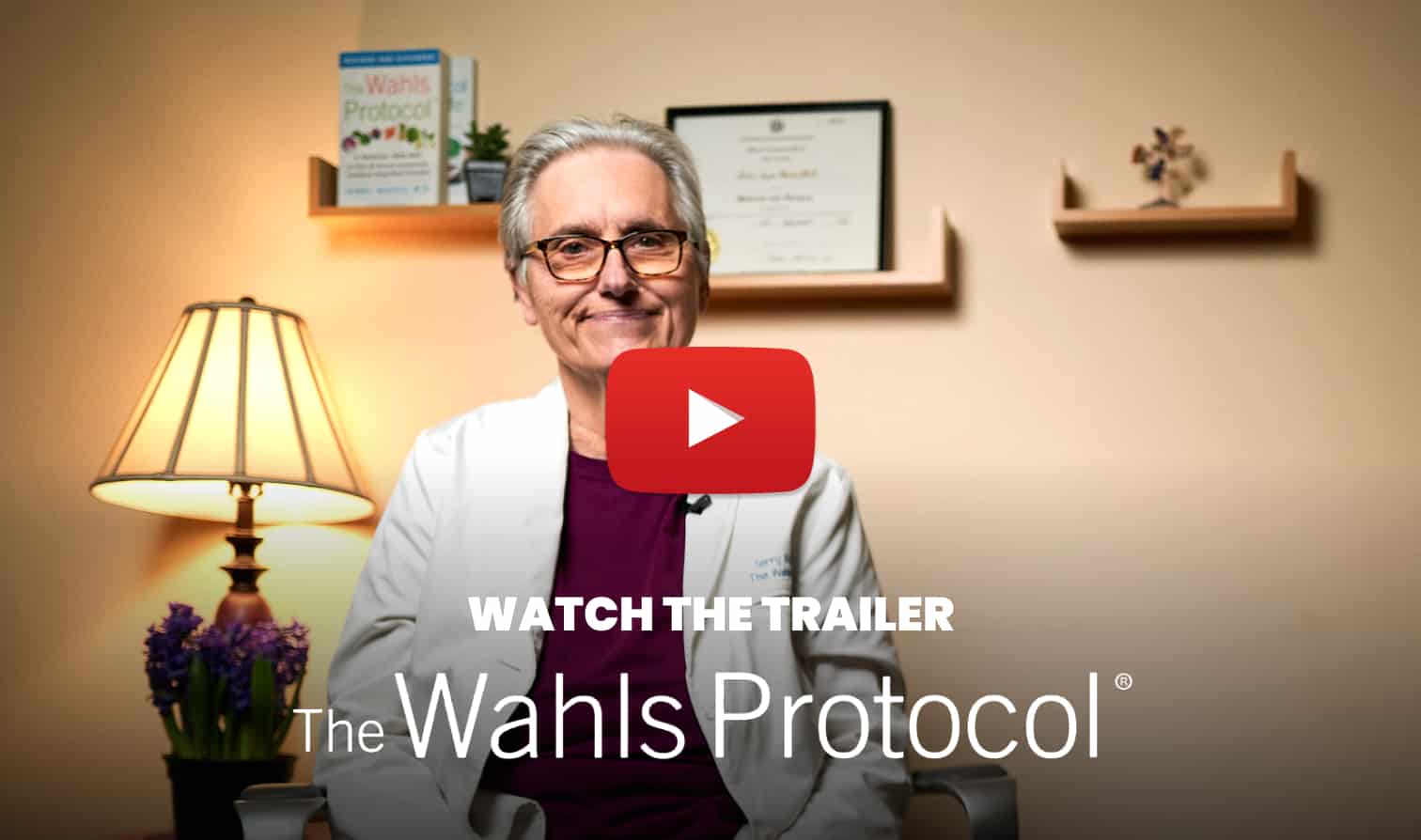Published and interviewed by Josh Sookman
Interviewed September 2, 2021

Featuring Crystal Phillips
Crystal is a former National Level Speed Skater, multiple sclerosis patient advocate, and now Executive Director of the Branch Out Neurological Foundation, a charity she co-founded to accelerate innovative technologies and non-pharmaceutical approaches for neurological disorders.
Crystal’s leadership consulting and nutrition background has enabled her to work with professional athletes including NHL players and Olympic Medalists as well as world class neuroscientists and business executives.
Crystal was recently named one of 18 Canadian changemakers by CBC Canada, Top 30 Under 30 by Explore Magazine in 2012 and Top 40 Under 40 by Avenue Magazine in 2016.
Jump into this health journey:
- How far along did your multiple sclerosis symptoms progress?
- What did your doctor initially tell you in terms of your prognosis, and what did they want you to do to manage your condition? Why didn’t you want to take that approach?
- What gave you the confidence to look for holistic treatment alternatives to conventional medical treatments for MS?
- How did you start your journey? What did you read? How much information did you consume before making your action plan? How did you aim to validate external recommendations?
- How did becoming a nutritionist play into your recovery? Any core takeaways from life as a nutritionist that remained as part of your MS diet and healing protocol?
- What criteria did you use as part of your process to determine the efficacy of alternative treatments or approaches you’ve tested?
- What you’re doing at Branch Out is really inspiring and definitely needed. How can our readers help the Branch Out Foundation?
- Have any of the approaches funded and studied by your foundation been validated yet or adopted by practitioners as “prescriptions” to patients?
- It’s uncommon for most to have attained the same mindset you developed as an elite athlete. What advice do you have for others fighting back against MS, other autoimmune conditions or health ailments, where they may be wondering how, like you, they can take steps to reclaim their health?
Josh: Crystal, I’m thrilled to reconnect and talk more about your story, and how you not only worked to overcome the vast majority of your multiple sclerosis symptoms, but also start a foundation and contribute towards meaningful research to help many, many others.
Last we spoke, you mentioned that you had competed as a national level speed skater for Team Canada, and that you were inching your way closer to Olympic level performance when you were suddenly struck with a rapid onset and progression of MS. Might I ask:
(by the way, if any of the questions get too personal, just please let me know and we can shift another direction)
Crystal: It’s okay. I’m always an open book with this stuff because I think the more we share this knowledge, the more other people can learn from it. So if it’s helpful, then I’m happy to share all this information.
I had a really aggressive onset of the disease, and had a very severe first relapse where I lost feeling from my chest to my toes, lost bladder control, had double vision – and I was still a teenager at the time. To this day, that was the worst relapse I’ve had even though I continued to have other relapses for the following 5 years.
Going with an alternative, more holistic treatment method led to not having another relapse since – so I’ve been relapse free for about 11+ years now. And although I feel great, the results from my MRIs continue to show progressing MS – there are more lesions, lesions that look active and getting larger. So the prognosis of my disease continues to be quite threatening; however, I haven’t experienced the symptoms for a long time, and am hoping that there’s something I’m doing right to mitigate whatever is predicted to be an inevitability.
Josh: Thanks Crystal. Can you please remind me:
Crystal: I decided to take an alternative approach after having the disease for 5 years, going in and out of relapse. With this approach I was able to defy the odds, and get back to an elite level of sport – speed skating.
These changes came after I went into my last relapse during my pre-Olympic season of training. I ended up losing vision in my left eye and I was told that my disease looked like it was progressing. I had lots of new lesions and was advised to prepare for the possibility of being in a wheelchair in the next few years.
The doctors recommended a much more aggressive drug treatment plan and started listing the side effects of that drug, and the side effects sounded worse than the disease itself. To be honest, the drugs seemed to have very little effect on the progression of MS in the long term, and so I didn’t understand why I would take the risk of the side effects to potentially decrease the amount and severity of the symptoms by just 20%.
When I was incorporating other holistic approaches into my life, it seemed to increase my quality of life drastically. It actually got me back to an elite level of sport. I slept better, had more energy, and all of these other positive consequences were very attractive. So, I was encouraged to go that route.
Josh: It’s amazing you were able to find holistic approaches that worked to manage your symptoms. A lot of people treat what their doctor says as gospel.
Crystal: I think it was less about courage and more about tapping into a mindset that you have naturally with sport when it comes to becoming an elite athlete and training at an Olympic level. You’re always looking around to find ways to help you optimize your sport performance.
As an athlete, it’s not just you and a coach and a training program – it’s also the equipment you use, it’s the sports psychology work, it’s going to the Chiropractor, eating a healthy diet, making sure you have lots of sleep, – it’s very holistic in nature.
So it was really transferring that same mindset that I already had from trying to optimize sports performance to now optimize my health.
Josh: That’s a really interesting insight. Mindset is just so, so important. Let’s go a bit deeper here, if we can.
Crystal: It’s such a good question and it definitely was an evolution. I had access to the resources from the national team for speed skating, meaning top Chiropractors, Physios, Sports Psyches – all that kind of stuff. So I utilized that, but I would still go into relapse and knew there was something missing. There was more that I needed to do.
I was quite desperate. I was young. I didn’t have a medical background. I really, really wanted to go far in the sport of speed skating. So honestly, whatever was advertised to me that didn’t seem harmful, I would try it. I tried acupuncture, herbal medicine therapies, dietary changes, and various lifestyle changes – it was a lot of trial and error.
Eventually I went to school to become an RHN (Registered Holistic Nutrition), and studied herbal medicine. I used my life as a science experiment to figure out what worked best for me. I swung the pendulum to extremes with diet and other interventions, and the more I got into understanding my body, understanding the influence that all of these therapies had on my disease and overall health, the more confident I became in structuring my protocol for myself.
Though my protocol worked for me, it may not work for other people, and that was the incentive to start my charity the Branch Out Neurological Foundation. I wanted to scientifically validate why and how specific changes worked to help reduce my MS symptoms and kept me relapse free for over a decade despite being told I’d be in a wheelchair by now.
Josh: I’m glad you brought up your journey as a nutritionist and starting your charity, I’d like to get into both.
Crystal: I took a one-year diploma from the Canadian School of Natural Nutrition. It taught me the 10% of what I know now, the other 90% came from practicing as a nutritionist and testing various lifestyle changes. I wish so badly that we taught this stuff in elementary school so that we could all have that 10% base and then figure out how to adapt things to our own lifestyles, according to our own goals.
Josh: Interesting. Now, you also started a charity, and part of its mandate is to validate some of these less conventional approaches to health.
Crystal: So, you just described my motivation to start the charity. Since I’m not a scientific or medical expert, I hated spending so much time and so much money and just hoping that things would work, not really knowing why.
“Going through this journey, I realized there was a big gap in medical research as it relates to non-pharmaceutical, unconventional approaches to healing the brain and neurological disorders like MS.”
I was motivated to start a charity to fill that gap by raising money to focus solely on non-pharmaceutical and tech innovation, because tech was another area that I felt was underutilized in the medical system.
I started the Branch Out Neurological Foundation to find the experts to help validate the underlying mechanisms behind what we’re all doing in the holistic, natural world – so that doctors can have the confidence they need in those approaches to be able to prescribe them to their patients and help more people get better with and/or without drugs.
The Branch Out Foundation ended up becoming a bigger dream than the Olympics themselves. I had a long, successful, and amazing career as a speed skater and now, what a privilege to have just as much of a dream to pursue.
Josh: There really needs to be more funds allocated to funding this sort of research.
Crystal: As you know we started the charity in Calgary – and pun intended we’re really trying to branch out across the country. We’re now in 9 universities funding neuroscience research across Canada…
We’re always looking for partners in the research academic field who are interested in collaborating.
We’re looking for donors and sponsors.
We have various events that we’re looking for volunteers to help run.
We have a strong board, but are always looking for great people who may be a great fit as we grow and evolve.
There’s always a way to help a charity, especially one with an ambitious vision of a future where we are free from neurological disorders.
Josh: That’s fantastic Crystal, I’ll make sure to include all these great ways to help in big, bold font so that folks take an extra few seconds thinking about it! (edit: ^ see what I did there!)
Crystal: Yeah, there’s a lot. One is such a powerful story, I wish she was here to tell it. Maybe we can get her to come on here and tell it another time?
Treating Seizures with the Ketogenic Diet
This woman – her son was two years old when he developed seizures. He was having up to 100 seizures a day and was told he would probably die – and went on to try every conventional treatment option available.
Then one day he tried the ketogenic diet, and within a couple of days his seizures stopped. Now he’s a thriving teenage boy who has never had another seizure since switching to keto.
So in this case the ketogenic diet was used as a treatment, a research project that we continue to support both for epilepsy as well as for other neurological diseases like Alzheimer’s disease.
Treating Major Depressive Disorder with Magnetic Brain Stimulation
Another fascinating research project is focused on magnetic brain stimulation. Magnetic brain stimulation increases the depressed area of the brain in people with major depressive disorder and helps them get to the point where they can do therapies and treatments.
When you’re at that stage of major depressive disorder, you have such low brain activity in an area of your brain that you simply lack motivation and ability to see your friends, go for a walk, or change your diet.
This helps promote the start of a new possibility and reality for people with that disorder.
And if you reverse this idea and take that same technology to instead decrease stimulation in the excited area of the brain, this could hold the key to treating Tourettes or seizures. The first TMS machine used for public and adults has made it to market and is in Alberta.
Josh: That’s really cool tech. Wonderful to see the impact your foundation has already had since you’ve started it. So, this brings me to my last question for today:
Crystal: Be the CEO of your body and of your health. Become the biggest expert on you and advocate for yourself and your health. When you have that mindset, you take all of the information in with a grain of salt, cross reference it with what you know and feel, talk to different experts because unfortunately in the medical system you might talk to one expert who disagrees with the next – and you’re stuck there as a non-medical expert to make a very serious decision.
It’s also worth looking into success stories of other people who’ve been able to navigate conventional or unconventional health care systems, and have really positive outcomes.
Unfortunately, when you go to the doctor’s office, you get painted this very ugly picture of your future and it’s really hard to resist the downward spiral in your head. The visions of you being in a wheelchair in the future – it’s a hard picture to get rid of and takes a lot of work.
Once you look and find stories of hope, it is inspiring how many there are. You may gain inspiration from my story, but know that there are stories out there that kick my story’s ass! I love the power stories have for healing and providing hope.
Josh: Crystal, thank you so much. Your story is wonderful and ever-so inspiring. I wish we recorded our conversation in video format so that we could have shared your radiant personality to all our readers, along with your hopeful and tremendous success story!












